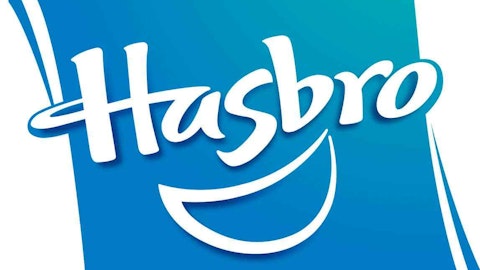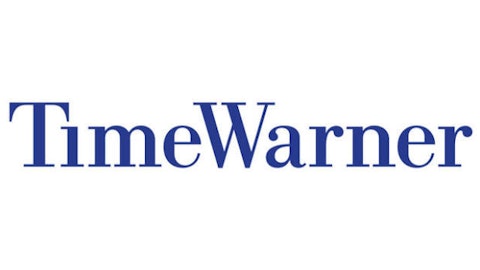The best thing about the stock market is that you can make money in either direction. Historically, stock indexes have tended to trend up over the long term. But when you look at individual stocks, you’ll find plenty that lose money over the long haul. According to hedge fund institution Blackstar Funds, even with dividends included, between 1983 and 2006, 64% of stocks underperformed the Russell 3000, a broad-scope market index.
A large influx of short-sellers shouldn’t be a condemning factor to any company, but it could be a red flag from traders that something may not be as cut-and-dried as it appears. Let’s look at three companies that have seen a rapid increase in the number of shares sold short and see whether traders are blowing smoke or if their worry has some merit.
| Company | Short Increase June 14 to June 28 | Short Shares As a % of Float |
|---|---|---|
| Six Flags Entertainment Corp (NYSE:SIX) | 107.3% | 7.2% |
| American Water Works Co., Inc. NYSE:AWK) | 68.8% | 0.7% |
| Total System Services, Inc. (NYSE:TSS) | 70% | 2.3% |
Source: The Wall Street Journal.
A wild ride
It has certainly been quite the comeback for theme-park operator Six Flags Entertainment Corp (NYSE:SIX), emerging from bankruptcy in 2010 and rewarding shareholders in May with the announcement that it was splitting its stock 2-for-1 and paying out a $0.90 quarterly dividend. Tourism in the U.S. has been a bright spot, with Six Flags’ traffic numbers way up — a 41% increase in just the first quarter alone. But, is this amazing ride for shareholders about to be cut short?

I continue to have concerns about the effects higher taxes could have on the consumer. In the first quarter we saw America’s largest retailer, Wal-Mart Stores, Inc. (NYSE:WMT), deliver a same-store sales drop because of delayed tax refunds and higher payroll taxes — and it’s among the best in terms of pricing power in the world. If Wal-Mart is struggling in a low-growth environment, I don’t see how Six Flags Entertainment Corp (NYSE:SIX) is going to prosper, either.
Finally, it’s a matter of branding. Some theme parks have managed to thrive even in a slow growth environment because of their branding ties. Take The Walt Disney Company (NYSE:DIS), for example, which has intricate ties between its theme park and the entertainment side of its business (i.e., its movies and merchandise). The two go hand-in-hand, which creates a pull for consumers to visit Disney’s theme parks and allots them good pricing power for admission tickets. Six Flags Entertainment Corp (NYSE:SIX) doesn’t have that branding. Sure, it has certain themed rides that may appeal to fans of specific franchises (e.g., Superman the ride), but it doesn’t have the allure to pull in vacationers as its counterpart Disney does. As such, I’d consider leaving this stock to let short-sellers have their way.
Dripping with potential
The end of June wasn’t kind to American Water Works Co., Inc. (NYSE:AWK), which saw short interest spike by nearly 69%. The risks for a water utility like American Water Works include its relatively high debt load; the potential for water rationing in drought-laden regions, which would slow water demand; and the potential for large infrastructure upgrades, which can sometimes be unexpected and sack profits. Yet in spite of these risks, I selected American Water Works to my Basic Needs Portfolio last week, expecting it to continue its run higher over the long run.
One factor many investors fail to take into account with regard to this water utility is its geographic diversity. A majority of its smaller peers operate in one state, or just a handful. If a drought hits, or the economy in that region deteriorates, it can negatively affect profits. American Water Works Co., Inc. (NYSE:AWK), on the other hand, operates in more than 30 states and two Canadian provinces, spreading out its risks and customer base.
The potential for dividend income growth is also huge. At a current yield of 2.6%, American Water Works Co., Inc. (NYSE:AWK) pays out a yield that’s right around the sector average but has a payout ratio that’s considerably lower than its peers. To that end, this means it has the greatest potential of boosting its payout in the water utility sector.
The final reason short-sellers may want to think twice about this trade is the simple fact of why I chose it in the first place: Water is a basic need. It’s true that economic downturns and droughts may slow demand, but the effect will probably be minimal. We need water to survive, and the average American family uses 300 gallons of it each day! Those figures would portend slow but steady growth for American Water Works Co., Inc. (NYSE:AWK) over the long run.
A world of potential
It’s pretty easy to understand why investors are skeptical of software developer and payment facilitator Total System Services, Inc. (NYSE:TSS), or TSYS, given that it has missed the Street’s revenue estimates in three of the past four quarters. Competition in the payment processing space has also been increasing at a breakneck pace. However, for me I consider all these worries for naught and think TSYS could be an intriguing play moving forward — and perhaps even a buyout candidate for the famed Warren Buffett.
A big growth opportunity for TSYS is in payment processing. According to Mastercard Inc (NYSE:MA) CFO Martina Hund-Mejean, 85% of the world’s transactions are still facilitated with cash, leaving decades of double-digit growth opportunity for TSYS and its peers to tap these markets. The best part is that the global credit market is always growing, meaning every company can get a piece of the pie without stepping on each other’s toes.
Another growth driver is its purchase of NetSpend Holdings, which closed earlier this month. NetSpend is a general purpose reloadable prepaid debit card company, which is meant to service some 68 million underbanked citizens in the United States. Prepaid debit cards are a hot spot of growth in the U.S., since the credit crisis made it impossible for some people to get traditional bank accounts. It could also represent a big opportunity overseas in underbanked regions such as Africa and Asia.
But not every prepaid company offered what TSYS was looking for. Green Dot Corporation (NYSE:GDOT), for example, directly competes with NetSpend, but has a good chunk of its revenue tied solely to Wal-Mart Stores, Inc. (NYSE:WMT). With the introduction of new competitors within Wal-Mart, Green Dot was left scrambling for new retail outlets last summer and has yet to fully recover. TSYS made the wiser decision to scoop up the pricier NetSpend, which had considerably better retail outlet diversity.
In short, bet against TSYS at your own risk.
Foolish roundup
This week’s theme is all about real-world necessities and diversity. Water is a basic need of life, and access to credit is slowly becoming a way of life for many citizens around the world, making American Water Works Co., Inc. (NYSE:AWK) and TSYS two companies that aren’t worth betting against. For Six Flags Entertainment Corp (NYSE:SIX), which lacks any driving force or branding, it may find itself at the mercy of a slow-growing U.S. economy.
What’s your take on these three stocks? Do short-sellers have these stocks pegged, or are they blowing smoke? Share your thoughts in the comments section below.
The article Shorts Are Piling Into These Stocks. Should You Be Worried? originally appeared on Fool.com.
Fool contributor Sean Williams has no material interest in any companies mentioned in this article.
Copyright © 1995 – 2013 The Motley Fool, LLC. All rights reserved. The Motley Fool has a disclosure policy.





